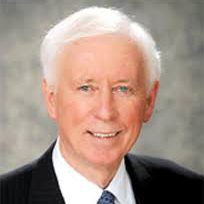WHO Geneva Tuesday
Today was the occasion of the annual luncheon sponsored by the World Medical Association (WMA) in conjunction with the WHO General Health Assembly. Invitees included health ministers from WHO member countries, representatives of nongovernmental organizations (NGOs) and other groups with which the WMA works. Also attending were members of the WMA Junior Doctor network and medical students from the International Federation of Medical Student Associations (IFMSA). The WMA sponsored special events for the latter two groups including a four-day training course in advocacy for the students.
The theme of this year’s conference was the launch of a global campaign by the WMA to promote influenza immunization among physicians. Guest speakers included Dr. Ingrida Circene, Minister of health of Latvia and Dr. Cornelia Betsch a psychologist from the University of Erfurt, Germany. I will summarize their excellent presentations in subsequent blogs. The following are the introductory remarks I provided at the luncheon.
“It is my pleasure to welcome you to today’s special event: “Influenza – We Can Do Better! Before I introduce our distinguished speakers, I would like to take a moment and give you some background on why we are going to talk about flu today and what it is that we can do better.
As the organization representing millions of physicians worldwide and setting the highest standard of medical ethics, we at the WMA believe it is our responsibility to speak out on public health issues. It is our obligation to raise our member national associations’ awareness, and highlight the issues that have important implications for physicians’ best practices in clinical care and prevention. Influenza outbreaks are one such issue. They are a significant global health threat that is frequently overlooked.
Seasonal flu for many of us seems like a harmless infection that people get every year and then get over it within a week or so. In that context it does not seem like a big deal; especially when considering such global health challenges as HIV/AIDS, TB, malaria and NCDs [Non-communicable Diseases] or even the impact of climate change on the health of vulnerable populations.
However, flu is harmless only at first glance. According to the World Health Organization, influenza outbreaks cause about 250,000 to 500,000 deaths per year globally. The US Centers for Disease Control and Prevention estimates that an average season of influenza results in tens of thousands of deaths and as many as 200,000 hospitalizations due to influenza-related causes in the US alone. The risk of complications associated with influenza is highest among older persons, young children, patients with underlying medical conditions and pregnant women. These are the populations that frequently are around health workers by virtue of attending clinics, hospitals and doctors’ offices. Therefore, healthcare workers play an important role in both transmitting and preventing the virus.
The good news is that a safe and affordable vaccine is available against influenza. But the bad news remains that healthcare workers’ immunization rates are unacceptably low, even in developed countries. According to the CDC, the healthcare workers vaccination coverage used to be around 40% in the US. That changed in 2010 when the Veterans Administration vaccinated 64% of its employees though the system-wide campaign titled “Infection: Don’t Pass it On”.
There is peer-reviewed evidence that as the percentage of immunized healthcare workers goes up, healthcare-associated influenza goes down. We also know that educational campaigns in immunization work. With the support of the International Federation of Pharmaceutical Manufacturers and Associations, April 20 at the start of WHO immunization week, we launched a global campaign to promote influenza immunization among physicians as a means to protect their health and the health of their patients.
I would like to take this opportunity and thank the IFPMA and its Director General Eduardo Pisani for their generous support. I thank the Advisory Board members of our campaign as well, who are helping us by contributing their expert knowledge. I would like to acknowledge the good work that Otmar and the WMA team are doing to make this campaign a success. We also appreciate the fact that WHO recognized the campaign on their web site.
Prior to launching the campaign, we surveyed our member associations, representing 102 countries worldwide to make sure our campaign was globally relevant and timely. The results were encouraging.
All respondents stressed the need for more information and global advocacy on the need for immunization of healthcare workers against influenza. 77.1% of respondents asked for toolkits with facts and figures as the most useful advocacy material, followed by web-based resources (68.6%) and draft letters to governments (14.3%). The respondents also emphasized the need for global statistics on morbidity, mortality and vaccination coverage. They requested provision of information about the virus “in a more understandable way.”
To officially kick off the campaign, today we will present the video we produced that clearly shows that getting a flu shot is a routine task that every healthcare worker should be performing every year. Physician vaccination practice also has the extra benefit of encouraging patients to follow their doctors’ lead, as physicians are the best role models for healthy behaviors. Immunizing physicians against influenza represents a standard of quality care.
We, as an organization speaking on behalf of more than 9 million physicians globally, are saying today that we can do better!”
WMA President Cecil. B. Wilson, MD travels around the world talking about the WMA’s work representing the millions of physicians worldwide. Acting on behalf of patients and physicians, the WMA endeavors to achieve the highest possible standards of medical care, ethics, education and health related human rights for all people. This blog will chronicle these travels and important issues.

